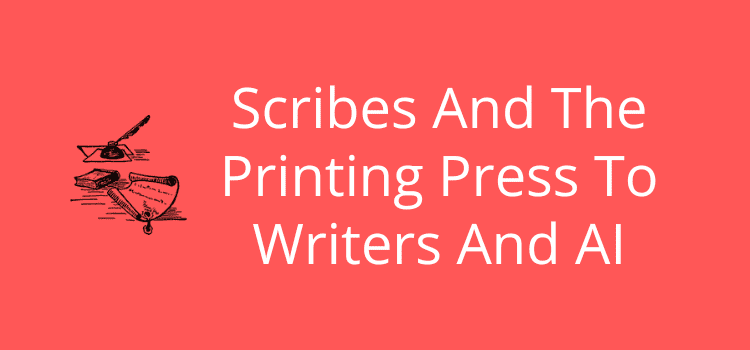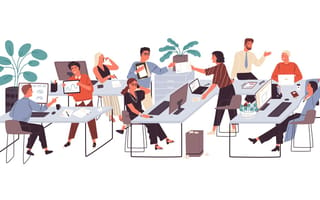From clay tablets to ChatGPT: a brief history of human knowledge ...
Where would we be without knowledge? Everything from the building of spaceships to the development of new therapies has come about through the creation, sharing, and validation of knowledge. It is arguably our most valuable human commodity.
From clay tablets to electronic tablets, technology has played an influential role in shaping human knowledge. Today we stand on the brink of the next knowledge revolution. It is one as big as — if not more so — the invention of the printing press or the dawning of the digital age.

Impact of Generative Artificial Intelligence
Generative artificial intelligence is a revolutionary new technology able to collect and summarize knowledge from across the internet at the click of a button. Its impact is already being felt from the classroom to the boardroom, the laboratory to the rainforest.
Evolution of Knowledge Sharing
Looking back to look forward, what do we expect generative AI to do to our knowledge practices? And can we foresee how this may change human knowledge, for better or worse?
While printing technology had a huge immediate impact, we are still coming to grips with the full scale of its effects on society. This impact was largely due to its ability to spread knowledge to millions of people.

Of course, human knowledge existed before the printing press. Non-written forms of knowledge date back tens of thousands of years, and researchers are today demonstrating the advanced skills associated with verbal knowledge.
Role of Scribes and the Printing Press
In turn, scribal culture played an integral role in ancient civilizations. Serving as a means to preserve legal codes, religious doctrines, or literary texts, scribes were powerful people who traded handwritten commodities for kings and nobles.
It was the printing press – specifically the process of using movable type allowing for much cheaper and less labor-intensive book production – that democratized knowledge. This technology was invented in Germany around 1440 by goldsmith Johannes Gutenberg.
Internet and Knowledge Revolution
The invention of the computer – and more importantly the connecting of multiple computers across the globe via the internet – saw the arrival of another knowledge revolution.
Often described as a new reality of speaking many-to-many, the internet provided a means for people to communicate, share ideas and learn.
As internet users increased, the need for content regulation and moderation also grew. However, the internet’s role as the world’s largest open-access library has remained.
Generative AI: Shaping the Future
Generative AI refers to deep-learning models capable of generating human-like outputs, including text, images, video, and audio. Examples include ChatGPT, Dall-E, and DeepSeek.

Today, this new technology promises to function as our personal librarian, reducing our need to search for a book, let alone open its cover. Trained on hundreds of billions of human words, AI can condense and synthesize vast amounts of information, across a variety of authors, subjects, or time periods.
Challenges and Controversies
Generative AI challenges the very concept of human knowledge: its authorship, ownership, and veracity. It also risks forfeiting the one-to-many revolution that was the printing press and the many-to-many potential that is the internet.
Most knowledge is born of debate, contention, and challenge. It relies on diligence, reflexivity, and application. The question of whether generative AI promotes these qualities is an open one, and evidence is so far mixed.
Using history as inspiration, more than 2 500 years ago the Greek philosopher Socrates said that true wisdom is knowing when we know nothing.
If generative AI risks making us information rich but thinking poor (or individually knowledgeable but collectively ignorant), these words might be the one piece of knowledge we need right now.










